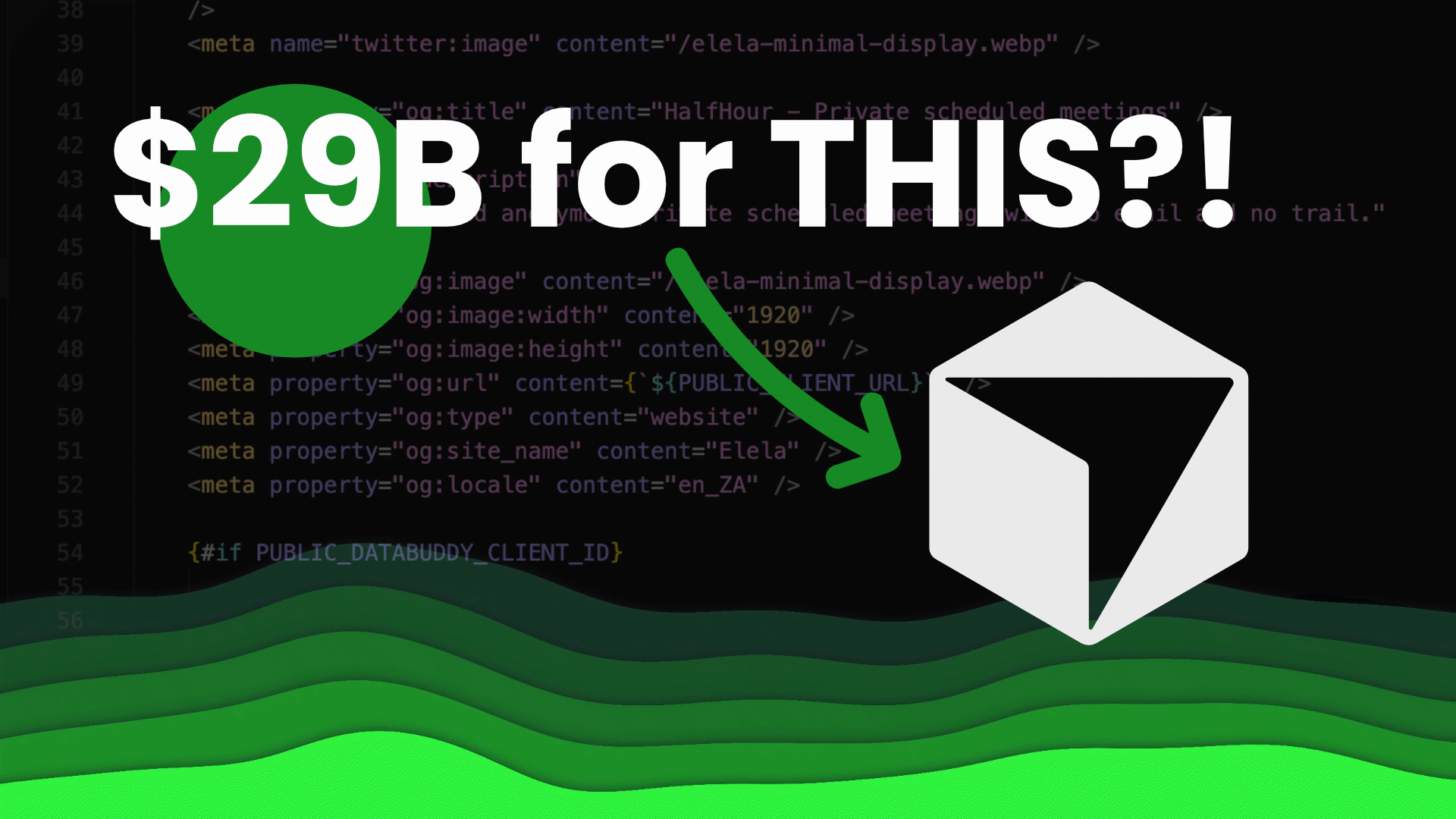Last Thursday, the company behind the famous AI IDE, Cursor, raised $2.3 billion in Series D funding at a staggering $29.3 billion valuation.
Let that number sink in for a second. As a software developer, my first reaction was simple: that's a crazy number. I'll admit, I haven't been the first to jump onto the AI coding bandwagon. For years, it has felt overhyped. Every six months, it seems, a startup issues a press release declaring the death of software development as a profession. I've always dismissed these claims as hyperbole, and so far, I've been proven correct. Software developers are, thankfully, still very much employed.
However, with Cursor, the narrative was always different. It never proclaimed it wanted to replace developers; instead, it positioned itself as a tool to simplify workflows and help developers iterate quickly. Despite this more reasonable approach, I remained reluctant.
My first and only real experience with AI-assisted coding was GitHub Copilot, a code completion tool that, in my experience, was more of a distraction than a help. Its constant, often irrelevant suggestions impeded my workflow. That's when I turned my back on AI coding.
From Copilot to Vibe Coding
Things have changed rapidly since the early days of Copilot. We now have the Model Context Protocol (MCP), an open-source standard from Anthropic that connects AI models to external systems. This has fundamentally improved AI-assisted programming.
Think back to just two years ago.
The workflow was clunky. You'd copy your code into a browser tab with Chat GPT to ask questions about debugging or feature implementation. It was disruptive. AI code editors were invented to solve this, essentially retrofitting AI into Visual Studio Code forks. This is where Cursor came into play.
The MCP paved the way for a new programming paradigm: vibe coding.
What is vibe coding? In simple terms, it's when you surrender the thinking to the AI. You just tell it what to do, and it writes the code for you. This has undeniably democratised programming. Someone who has never written a line of code could build a calculator or even something more sophisticated just by prompting an AI within an IDE like Cursor.
This meant Cursor wasn't just for the intrepid developer looking to ship fast. A new demographic emerged: the "average Joes" pregnant with ideas. You know the ones, they used to tell you they had a million-dollar app idea, made you sign an NDA, and offered you a 50/50 split on the proceeds.
Now, they don't bother developers anymore. They open Cursor and start prompting away, vibe coding their way to a million dollars or so they say. Either way, it’s incredible stuff.
Is Cursor Worth the Hype?
This brings me back to the big question: is the share of this market really worth $29.3 billion? I was curious. I had never used Cursor. To me, the valuation seemed like a massive bet that Cursor would emerge victorious in this AI race. But what makes it so special?
I downloaded the editor to investigate.
My verdict? Nothing particularly stands out. Cursor is just a fork of VS Code. Nothing more, nothing less. It offers the standard AI features on the side. You can tweak it, and it works. But for someone who has used VS Code for the past four years, Cursor has no "wow factor." There's nothing to write home about.
I made a video a few weeks ago about Zed, the new kid on the block in the code editor space. It also has AI features, but it comes with a wow factor: the novelty of something new and fast.
Unlike Cursor and VS Code, Zed is not built on the bloated Electron framework. It's built with Rust, and it's so quick, there's no way you wouldn't be impressed.
But the real difference lies in choice and cost:
Cursor: Locks you into its own subscription. The entry-level plan is $20 USD per month.
Zed: Allows you to connect different AI models from your favourite vendors. I, for one, use Deepseek, which is significantly cheaper. The best part about Deepseek is its prepaid system where you buy the credits you need instead of being locked into a subscription. Zed also offers its own subscription for $10 USD per month, which includes a variety of other models under one price.
The advantage of Cursor is clear: they don't have to sell developers on switching to a whole new editor. It's built on VS Code, so the entire ecosystem of extensions just works. They are the market leader. However, I believe Zed is the better offer because it provides choices and doesn't lock the developer into a single, expensive subscription.
A Valuation Built on Potential
So, is the $29.3 billion valuation justified? Absolutely not.
The company generates around $1 billion in revenue, but a massive portion of its operational costs goes directly to paying Anthropic for Claude. In effect, they need that funding just to continue operations; they'd likely go out of business tomorrow without it.
At the end of the day, the valuation is just a number predicated on potential. The larger it grows after each funding round, the better it is for public relations. It creates a narrative of success that attracts more users and more investment.
But is it sustainable? Only time will tell. For now, I'll stick with an editor that gives me speed, choice, and doesn't treat my wallet as an afterthought.

